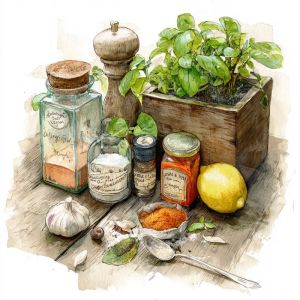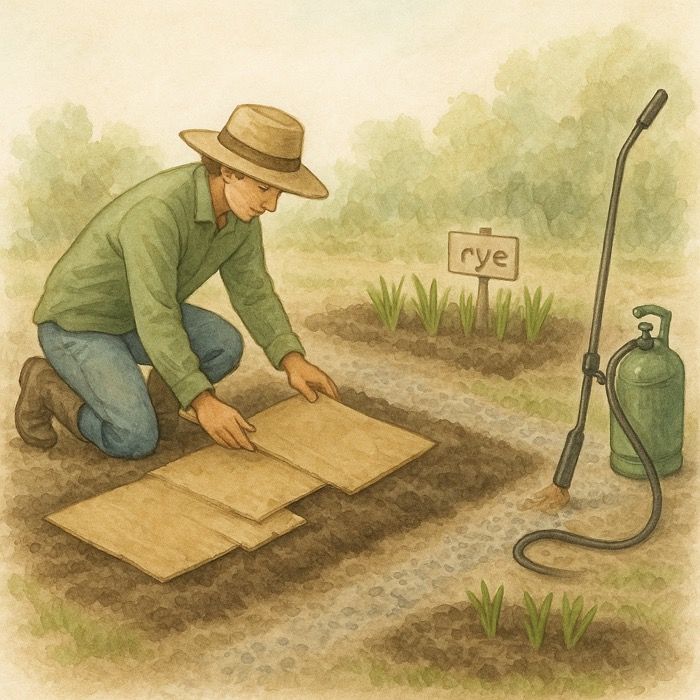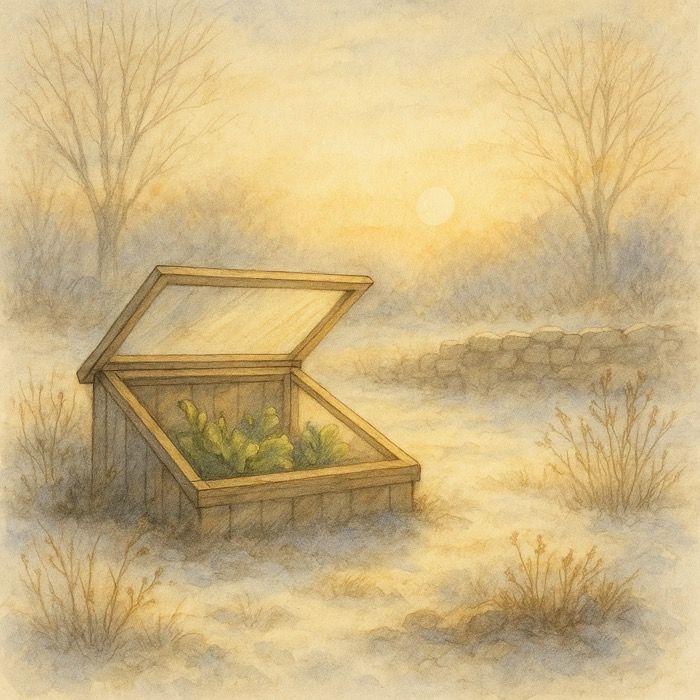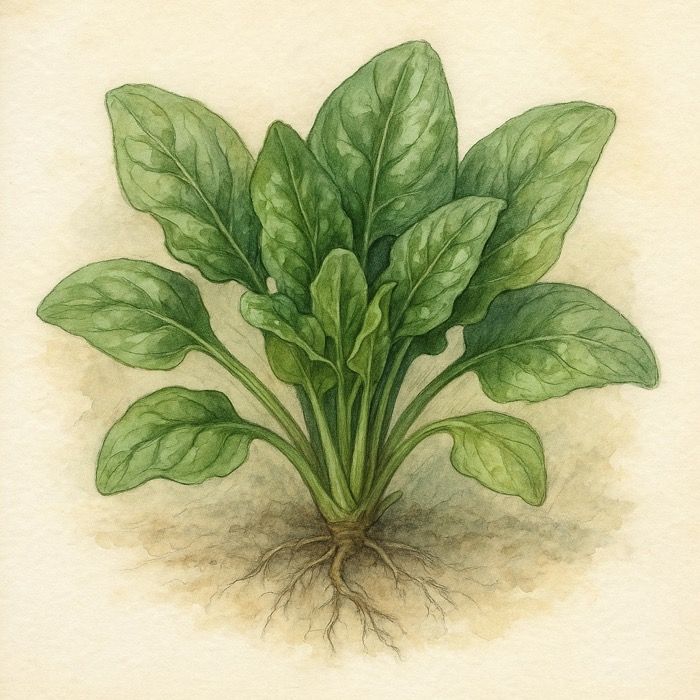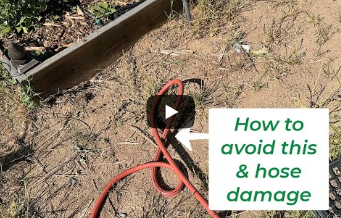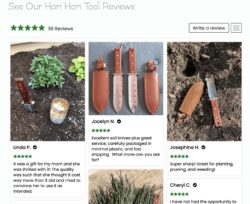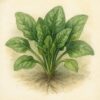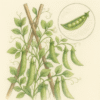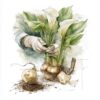Kitchen Spices in the Garden – Myths and Research Dispelled
Most gardeners love to experiment with natural remedies. And sometimes, the answer really is sitting right there in your spice cabinet, and using spices in the garden. But not every sprinkle of cinnamon or dash of garlic powder will work miracles. Some of these ideas are grounded in science, others in good old-fashioned garden lore. Let’s separate the myths from the facts so you know which kitchen spices truly belong in your garden toolkit.
Cinnamon – Antifungal helper, not a miracle cure
Garden myth says cinnamon guarantees seedlings will never suffer damping-off disease. The reality is less dramatic. Research confirms cinnamon’s main compound, cinnamaldehyde, has antifungal properties against pathogens like Rhizoctonia and Fusarium. A sprinkle around seedlings can reduce surface fungus, and dusting cuttings may help prevent rot. Just remember it’s supportive, not foolproof.
Garlic – A proven pest and disease repellent
Few natural remedies have as much scientific backing as garlic. Compounds like allicin and sulfur volatiles are well documented to repel aphids, beetles, mites, and even some fungi. Fresh garlic sprays or oils are the most effective. Garlic powder can help, but it’s not as potent. Many organic pesticides are built around garlic extracts for a reason.
Mustard – Soil health ally with science behind it
Mustard belongs to the Brassica family, famous for natural glucosinolates. When mustard seed meal is incorporated into soil, these compounds act as a biofumigant, suppressing nematodes and soil pathogens. Agricultural research supports its use, though it requires more than a light dusting from your kitchen jar. Think soil amendment, not seasoning.
Cloves – Powerful in oil form
Ground cloves have a reputation for preventing mildew and molds. The truth is in the chemistry: clove oil contains eugenol, which is actually registered as an organic pesticide and fungicide. That means it really can control fungal pathogens and some insect pests. The catch is that you need the concentrated oil, not just a sprinkle of ground spice.
Turmeric – Promising, but not fully proven
Turmeric contains curcumin, known for its antifungal and antibacterial activity in lab tests. However, its real-world use in gardens is limited and inconsistent. A light sprinkle in soil or as a mild drench might help, but don’t count on it as your primary disease control.
Chili, Cayenne, and Paprika – Short-lived deterrents
Capsaicin is what gives peppers their heat, and it’s what makes leaves taste unpleasant to mammals like rabbits, squirrels, and even deer. Sprinkling chili or cayenne powder can deter nibblers temporarily. Research also shows some insect repellent effect, but rain and watering wash it away quickly. It’s best for short-term protection.
Black Pepper – More myth than method
Some gardeners swear black pepper drives away ants and aphids. While piperine does have insecticidal potential in lab studies, garden results are weak. At best, it disrupts ant trails or feeding temporarily. It won’t solve an infestation.
Ginger – Mostly anecdotal use
Ginger’s essential oils show antifungal activity in controlled tests, but garden-level results are anecdotal. It may discourage root rot slightly, but it’s not reliable. Think of ginger more as a culinary powerhouse than a garden staple.
The evidence scale – What really works?
- Proven by research – Cinnamon, Garlic, Mustard seed meal, Clove oil
- Promising but inconsistent – Turmeric, Chili/Cayenne
- Mostly anecdotal – Black Pepper, Ginger
Master Gardener Tips
- Always test first – A sprinkle of spice is powerful for a seedling tray but might irritate roots in larger amounts
- Use fresh where possible – Garlic cloves and fresh extracts outperform powders
- Combine with good practices – Healthy soil, proper watering, and airflow will always protect your plants more than spices alone
- Think prevention, not cure – Spices help deter problems but rarely solve major infestations or diseases
Spices from your kitchen can indeed serve a role in the garden, but they’re best seen as gentle allies, not miracle workers. If you want to experiment, start small, monitor results, and blend these natural helpers with tried-and-true gardening practices.
Frequently Asked Questions
Does cinnamon really stop fungus in the garden?
Yes, cinnamon has antifungal compounds and can help reduce surface fungus and damping-off in seedlings, but it won’t completely prevent fungal diseases.
Can I use garlic powder instead of fresh garlic for pest control?
Garlic powder has some effect, but fresh garlic sprays or oils are much more powerful. Powder is best used as a supplement, not a substitute.
Will cayenne pepper keep deer and rabbits away?
Yes, capsaicin in cayenne makes plants less appealing, but it washes off in the rain and needs frequent reapplication. It’s a deterrent, not a long-term solution.
Is mustard powder really effective in the soil?
Kitchen mustard powder has little effect on its own. Mustard seed meal, used in larger amounts as a soil amendment, is proven to suppress nematodes and some pathogens.
Are cloves effective for mold and mildew?
Clove oil (rich in eugenol) is effective and even used in organic pesticides. Ground cloves from your spice rack are far less powerful.
Which kitchen spice is the most reliable in the garden?
Garlic has the strongest track record, with cinnamon and mustard seed meal also supported by research.
More From Our Master Gardener
Recent Posts

5 Unexpected Winter Weed Control Strategies (That Don’t Involve Mulch)

Harnessing Winter Sun – Passive Solar Tricks for Your Garden

How to Grow Spinach – The Ultimate Beginner’s Guide for Tender, Nutritious Leaves

How to Grow Peas: The Ultimate Beginner’s Guide for Sweet, Crisp Harvests

How to Propagate and Dig Up Calla Lilies – A Step-by-Step Guide
